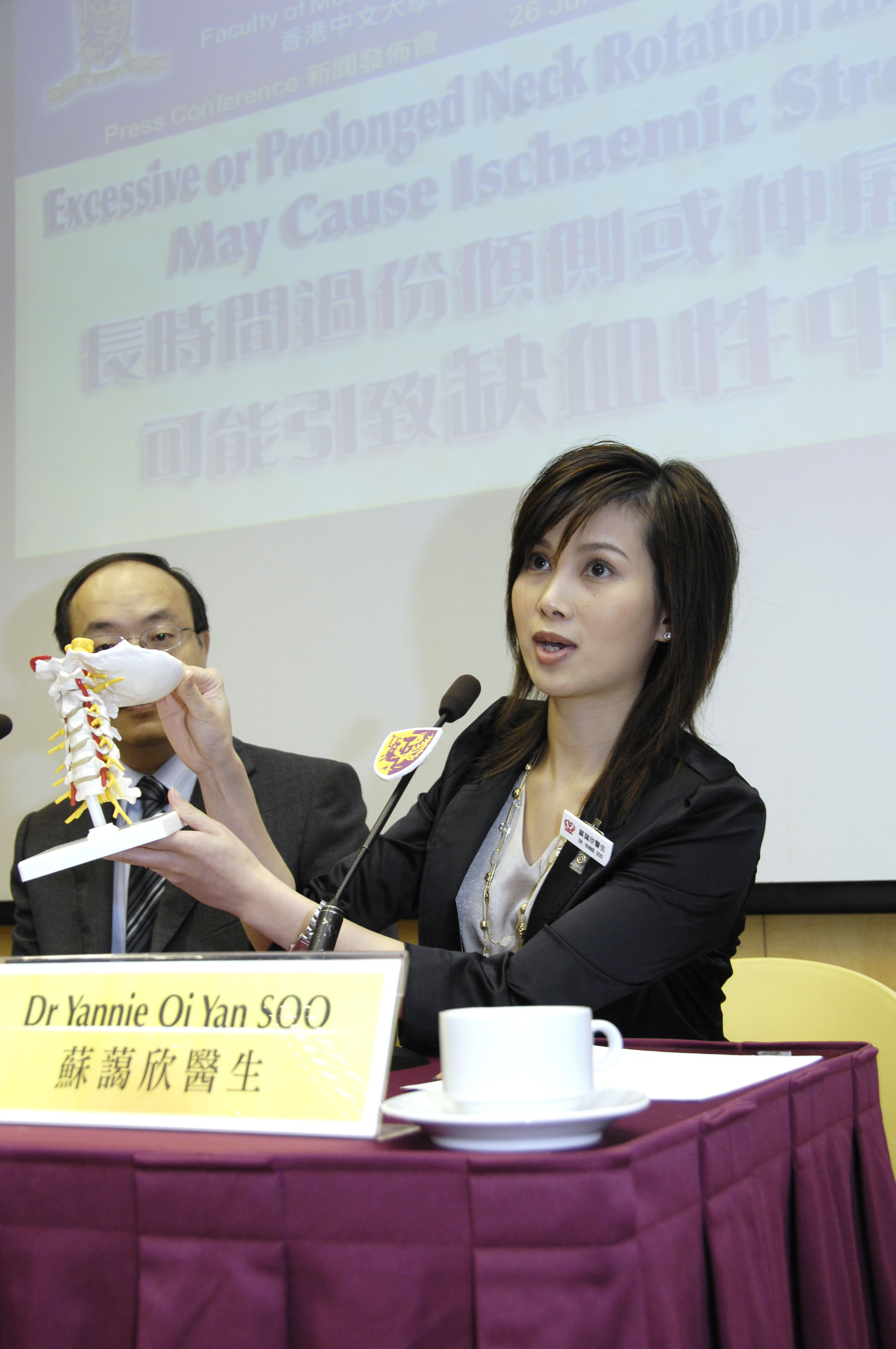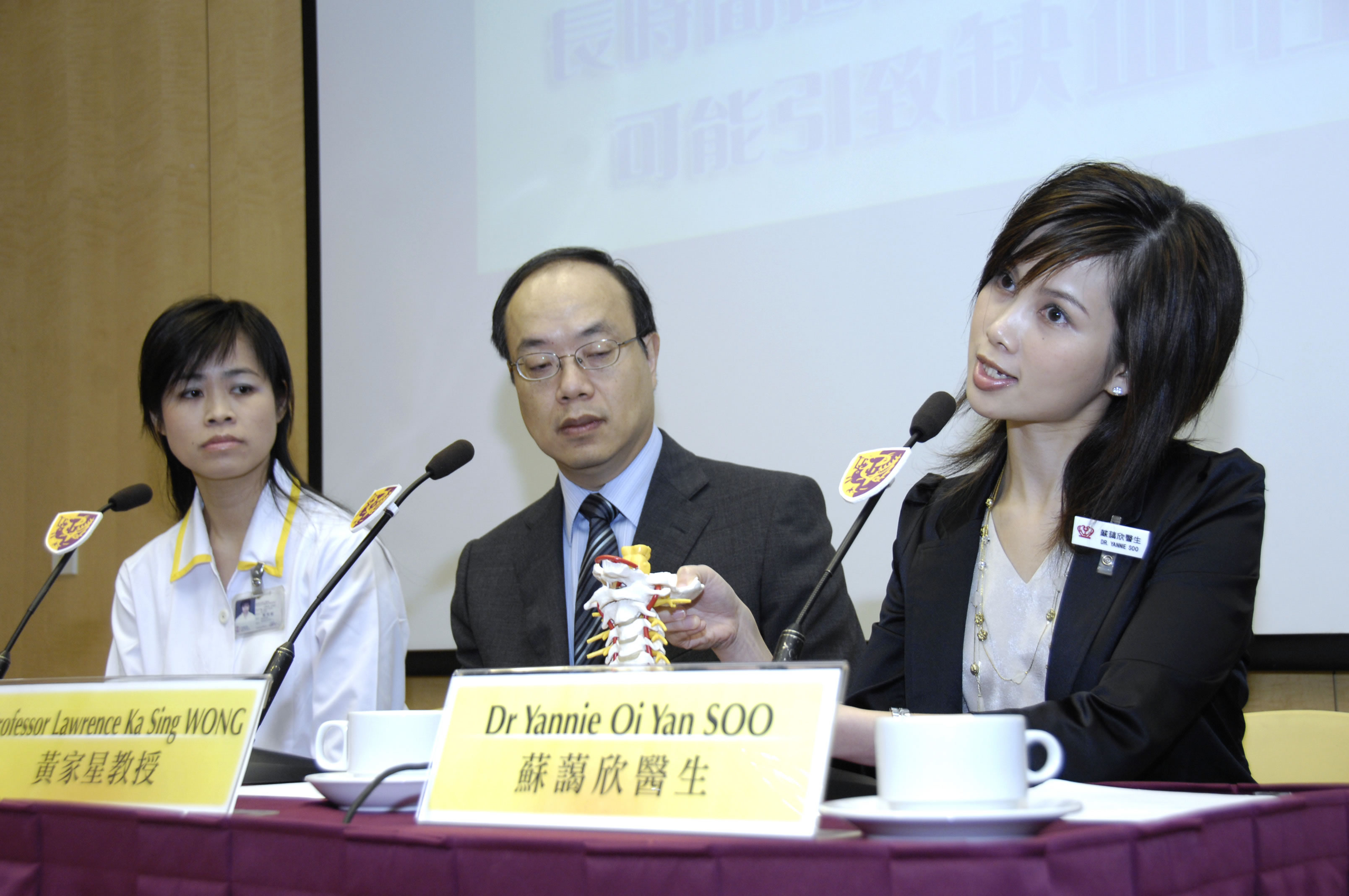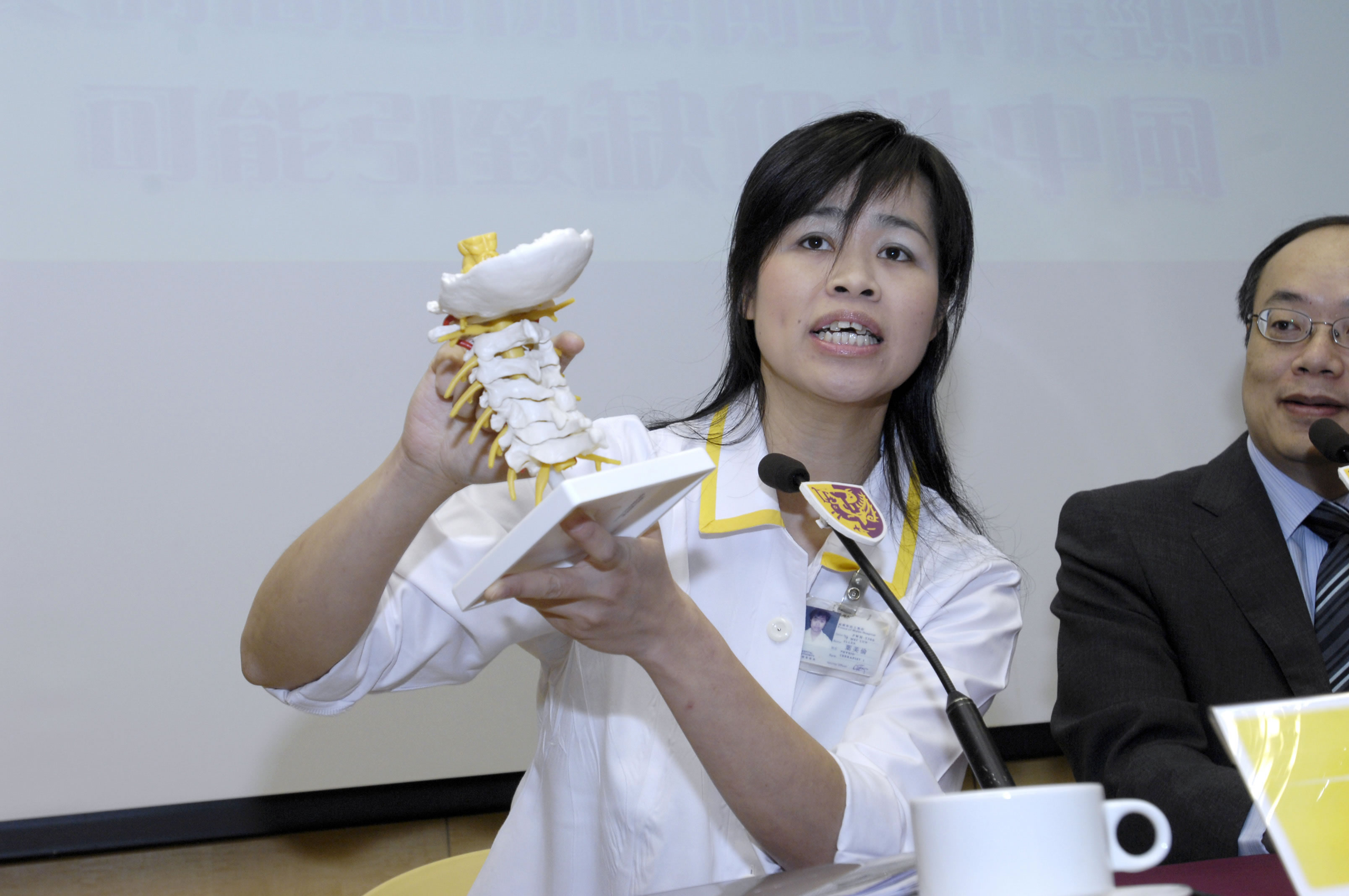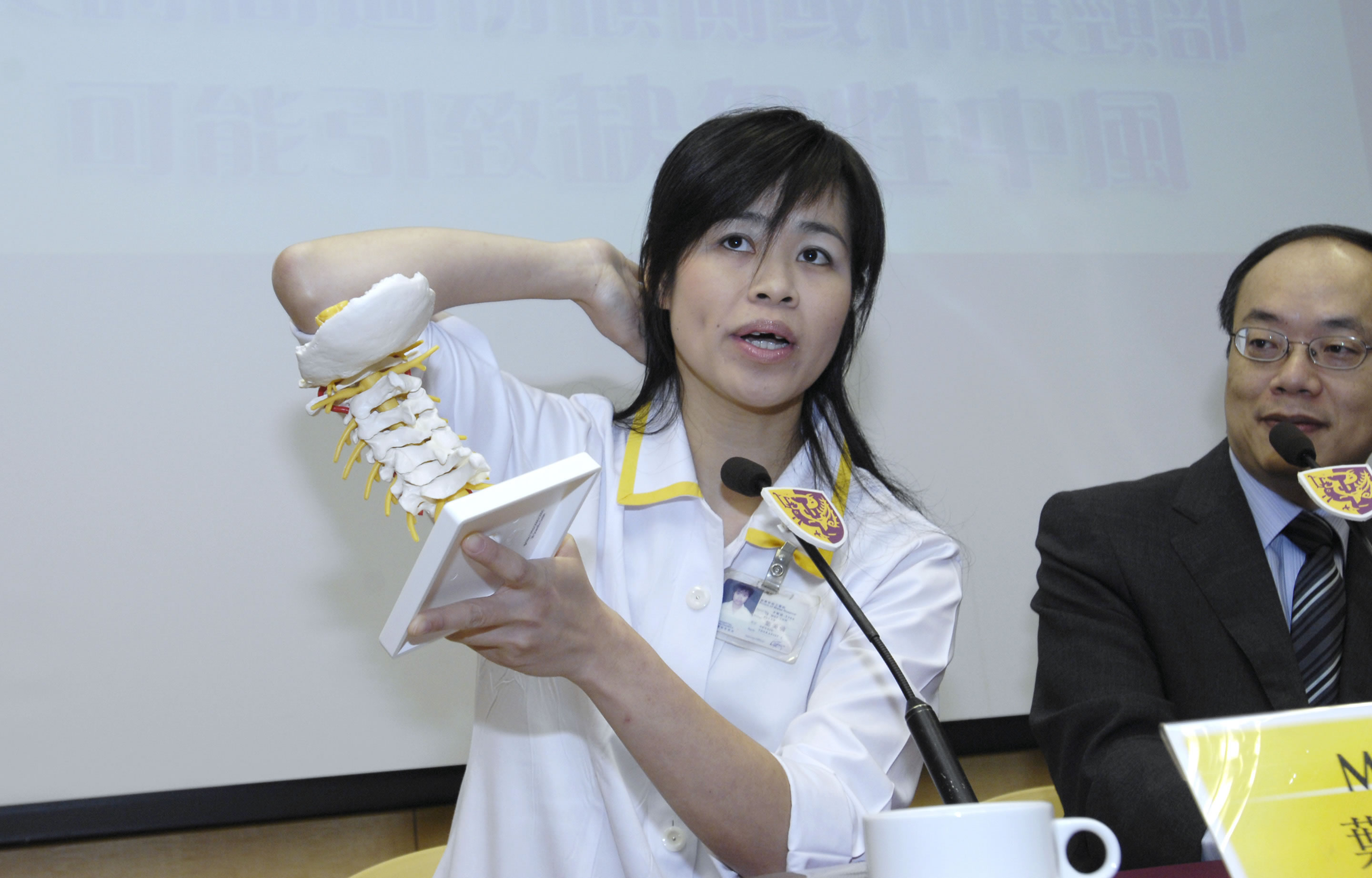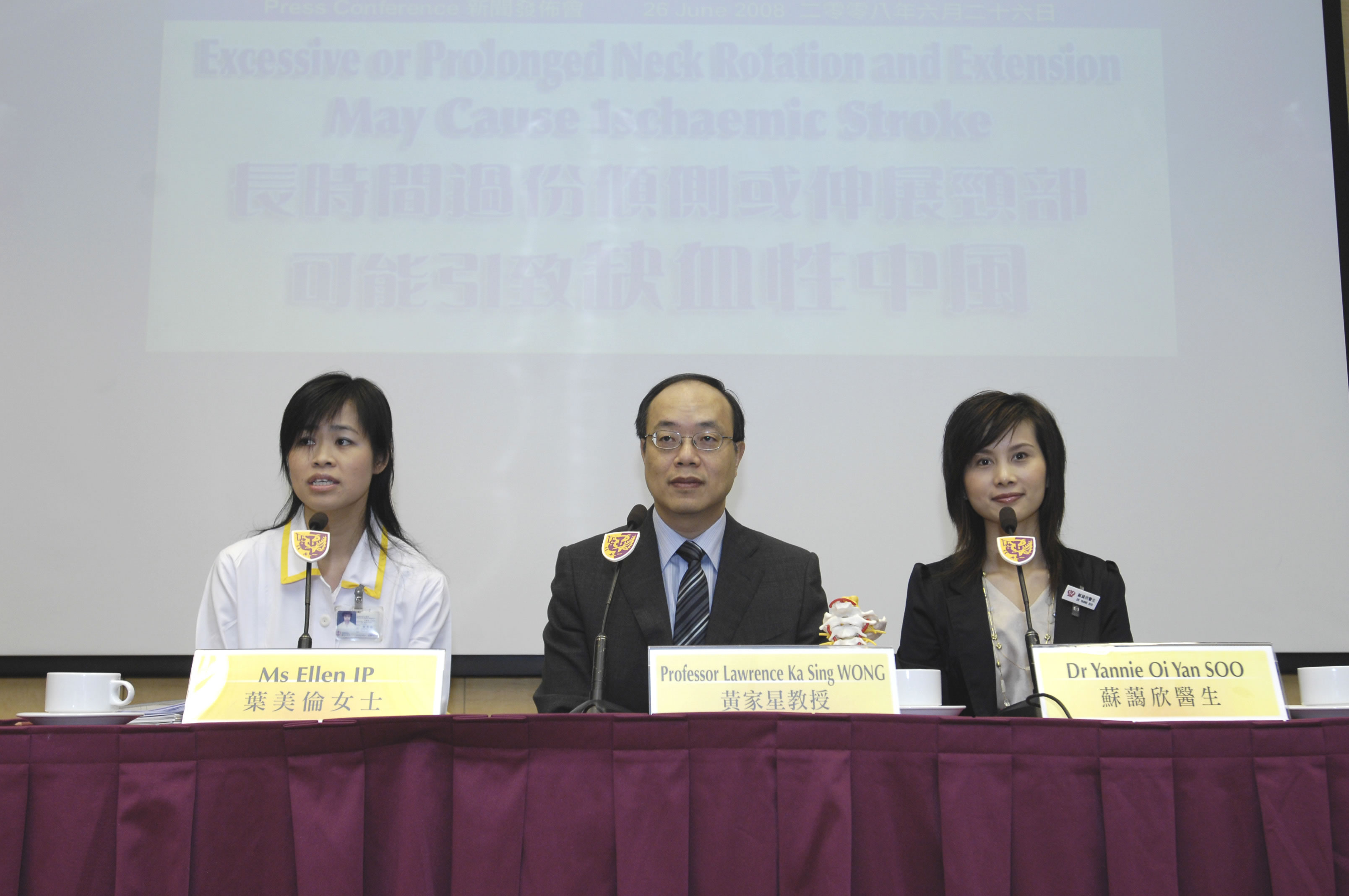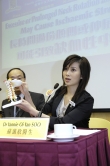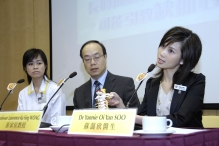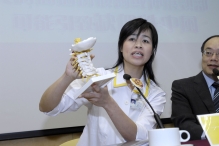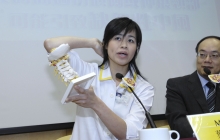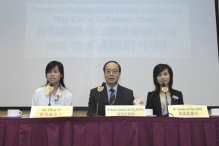CUHK
News Centre
Excessive or Prolonged Neck Rotation and Extension May Cause Ischaemic Stroke
Stroke is the leading cause of disability in adults. Carotid and vertebral arteries are the major vessels responsible for blood supply to the brain. In the neck, these vessels are susceptible to injury as they are not fully protected by skeletal structures. When the neck is over extended or rotated for a prolonged period of time, the mobile segments of the arteries can be compressed or torn (dissection). This will compromise blood flow into the brain and result in stroke.
In Hong Kong, stroke related to prolonged and excessive neck extension or rotation during sports and work are not rare. Researchers of the Department of Medicine and Therapeutics, and the S. H. Ho Cardiovascular Disease and Stroke Centre at The Chinese University of Hong Kong (CUHK) have discovered that during the past 2 years, these cases are encountered about once every 3 months in the Prince of Wales Hospital. The average age of these patients is 47.8 years old. Most of them are male patients and they recovered well after receiving treatments.
Dissection is a tear in the inner lining of the artery. This tear allows blood to leak into the artery wall and hence, compromises blood flow into the brain. Dissections are most often preceded by trauma to the neck. Examples of causes leading to mild trauma include chiropractic manipulation or prolonged telephone conversation by securing the phone between one’s ear and shoulder, while severe neck trauma may be resulted from sports and traffic accidents. For some patients, the cause of dissection is unknown and genetic component may be present.
Neck rotation or extension during usual daily activities seldom causes stroke. However, given that the vertebral artery is small with a diameter of about 2 mm only, it can sometimes be compressed by the base of the skull when the neck is over extended for a prolonged period of time, thus affecting blood flow into the brain in some severe cases.
Work and sports are part of everyone’s life. The Faculty of Medicine at CUHK concludes that though uncommon, it is important for the public to realize that excessive neck rotation or extension for a prolonged period of time may occasionally cause ischaemic stroke. It is important to be aware of correct neck posture, not only to prevent spinal degeneration and muscle pain, but also to avoid injury to neck vessels. Should symptoms of stroke occur after sports or prolonged neck rotation or extension, one should seek medical advice immediately as early treatment may prevent the disease from progression.
Dr Yannie Oi Yan SOO (right), Honorary Clinical Tutor, Department of Medicine and Therapeutics, CUHK explains the causes of dissection


